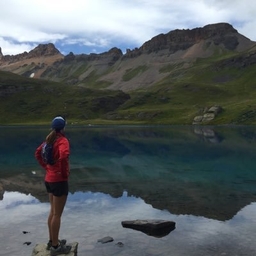
Heather Sackett
Managing Editor at Aspen Journalism
Environmental journalist covering the Colorado River and water on the Western Slope. Non-profit news evangelist and trail runner. @aspenjournalism
Articles
-
5 days ago |
gjsentinel.com | Heather Sackett
The banks of a previously degraded one-mile stretch of Rifle Creek are now thick with willows and cottonwoods, and have signs that deer, elk and beavers are once again frequent visitors. This summer marks 10 years since an ambitious, multiphase riparian restoration project began on John Powers’ ranch, located north of Rifle and off Colorado 325.
-
1 week ago |
aspenjournalism.org | Heather Sackett
Welcome to The Runoff, where Aspen Journalism’s Water Desk provides insider news and water-related updates you won’t read anywhere else under The Briefing and additional context and updates on the most recent reporting from our water desk under The Recap. Thanks for going deeper with us and for supporting our nonprofit, in-depth, investigative reporting.
-
1 week ago |
aspenjournalism.org | Heather Sackett
The banks of a previously degraded 1-mile stretch of Rifle Creek are now thick with willows and cottonwoods, and have signs that deer, elk and beavers are once again frequent visitors. This summer marks 10 years since an ambitious, multiphase riparian restoration project began on John Powers’ ranch, located north of Rifle and off Colorado 325.
-
1 week ago |
gjsentinel.com | Heather Sackett
There’s an old catchphrase that Colorado kayak park proponents used in the early 2000s to sell the idea that keeping water in streams mattered just as much as water for big farms or new housing developments: “The greater the flow, the greater the dough.”“You would have thought it was an Economics 101 class,” said Glenn Porzak, a Boulder attorney who worked on behalf of the city of Golden and the towns of Breckenridge and Vail to secure the state’s first water rights for recreation.
-
2 weeks ago |
aspentimes.com | Heather Sackett
Aspen is reaffirming its plans to build reservoirs to store water from Castle and Maroon creeks — but where they might be built has still not been decided. Attorneys for the city filed two applications May 30 in water court: a diligence application detailing the actions Aspen has taken toward developing the rights over the past six years and an application to change the original locations of the reservoirs.
Try JournoFinder For Free
Search and contact over 1M+ journalist profiles, browse 100M+ articles, and unlock powerful PR tools.
Start Your 7-Day Free Trial →Coverage map
X (formerly Twitter)
- Followers
- 591
- Tweets
- 889
- DMs Open
- Yes

RT @CoyoteGulch: Future water conservation program almost guaranteed in Upper Basin: River District warns again about impacts to Western Sl…

RT @R_EricKuhn: The bottom line here is that the federal money funneled to through the UCRC to reduce consumptive use was wasted. The water…

RT @Sammy_Roth: When there's extra water in Colorado streams, farmers and ranchers can take as much as they want — a loophole that helps de…